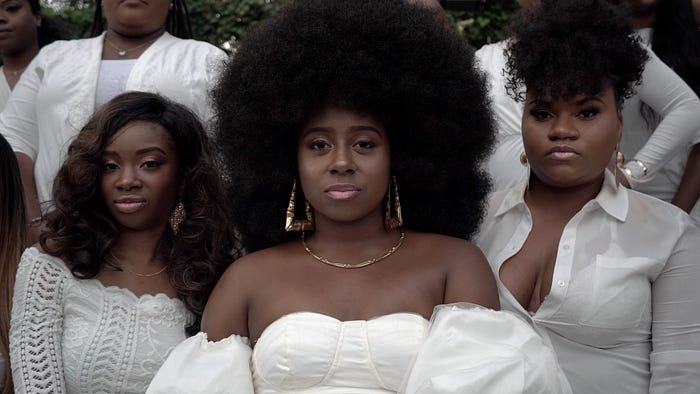

So What If They Did? Thoughts On Affirmative Action
source link: https://zora.medium.com/so-what-if-they-did-thoughts-on-affirmative-action-b714834da28b
Go to the source link to view the article. You can view the picture content, updated content and better typesetting reading experience. If the link is broken, please click the button below to view the snapshot at that time.

image from TopSphereMedia
So What If They Did? Thoughts On Affirmative Action
Here is the letter I shared with the 5,000+ students, alumni, donors, and colleagues who are connected to The Thelton E. Henderson Center for Social Justice, where I work as Executive Director, following the Supreme Court’s ruling against affirmative action:
Dear friends,
I would prefer, if I’m honest, to rest, to meditate, to lift Black people in prayer. And I will.
But, despite how fraught it has become to voice opinions on these issues, it is my responsibility to speak publicly, or at least to this community, about the Supreme Court’s ruling that affirmative action in college admissions is unlawful. As you know, the Henderson Center was formed in response to Proposition 209, California’s 1996 anti-affirmative action ballot initiative, which remains the law. I’d be remiss not to offer some thoughts in response to the national eradication of affirmative action.
And yet, what to say? My heart is heavy. My mind is heavy, too.
When I was a 2L, I was offered a summer job at a prestigious law firm. I was well qualified, having earned good grades, including the highest grade in two classes, at a top law school. Still, I was nervous about whether I would cut it. One evening, sharing a meal with a fellow law student, I finally voiced my deepest anxiety. I said, “But what if they only offered me a job because I’m Black?” Without missing a beat, my friend replied, “So what if they did? Don’t you think I’ve been offered jobs just because I’m white?!”
He was reminding me that affirmative action is remedial for many people of color only because, as reams of data show, an “affirmative action” of a different sort has been, and remains, the norm for many white people. He was reminding me of the layered, long history of colonization, slavery, and racism that runs through it all. But most importantly, he was reminding me that I had been socialized by racial hierarchy into fearing the cure, into blaming the medicine for the symptoms of the disease.
An endemic problem in American society is our penchant for ignoring the disease, so much so that fitting remedies strike us as superfluous and problematic. But as Justice Sotomayor writes, “Ignoring race will not equalize a society that is racially unequal. What was true in the 1860s, and again in 1954, is true today: Equality requires acknowledgment of inequality.” And from Justice Jackson: “Deeming race irrelevant in law does not make it so in life.”
I recount the conversation with my white friend because I can’t be the only Black or brown person, or woman, who has wondered whether they were “getting through” because of affirmative action. This is what Justice Clarence Thomas laments, and I get it. I concede that I have felt the very insecurity that some blame on affirmative action. But the analysis cannot end there. Because casting blame on the remedy is itself a symptom of the disease. The racial insecurities and racial entitlement we feel in this country stem from living under an unnatural, immoral, and ongoing system of racial hierarchy and racial dominance — not from our efforts to correct that system and its wrongs.
I’ve never forgotten that moment with my 1L friend. It was the first time in law school I felt permission to say, as my friend had, so what if they did. So what if part of why I got into law school is because I’m Black — descended from generations of enslaved people, of Black Coded people, of Jim Crowed people, of Mass Incarcerated people, of survivors and fighters and geniuses? Tell me to my face that I, with my ancestors’ blood in my veins and with my own hard, hard work in the face of misogyny and racism, with a uniquely American dialectic and all the perspective and insight it affords me, have not earned my right to my blessings. If I sound a bit indignant and proud, or if it sounds like I’m making a non-legal argument, well, that’s because I am a bit indignant and proud, and I am making a non-legal argument. Even in this profession, other forms of knowing and expression matter.
There will be time to analyze the Court’s decision, and to strategize, implement, and share institutional and personal responses. But let’s remember now that, while we stay within the bounds of the law, no law can diminish the imperative to live our values. Our values, including creating racial equity, don’t come from a law, they come from our humanity.
And to our Black and brown students of color and colleagues, and all those who have benefited from affirmative action: You are free to proudly say, in your innermost heart or aloud, so what if they did? You don’t have to cede the terms of the debate, you don’t have to retreat into anxiety or self-consciousness, and you don’t have to silence yourself. Affirmative action is deserved. There is no shame in benefiting from medicine, there’s just the truth that medicine was necessary. There is no anti-whiteness or anti-maleness, there is only a yearning for repair. There is, I hope, maybe even an opportunity to heal.
Onward.
In solidarity,
Savala
Recommend
About Joyk
Aggregate valuable and interesting links.
Joyk means Joy of geeK